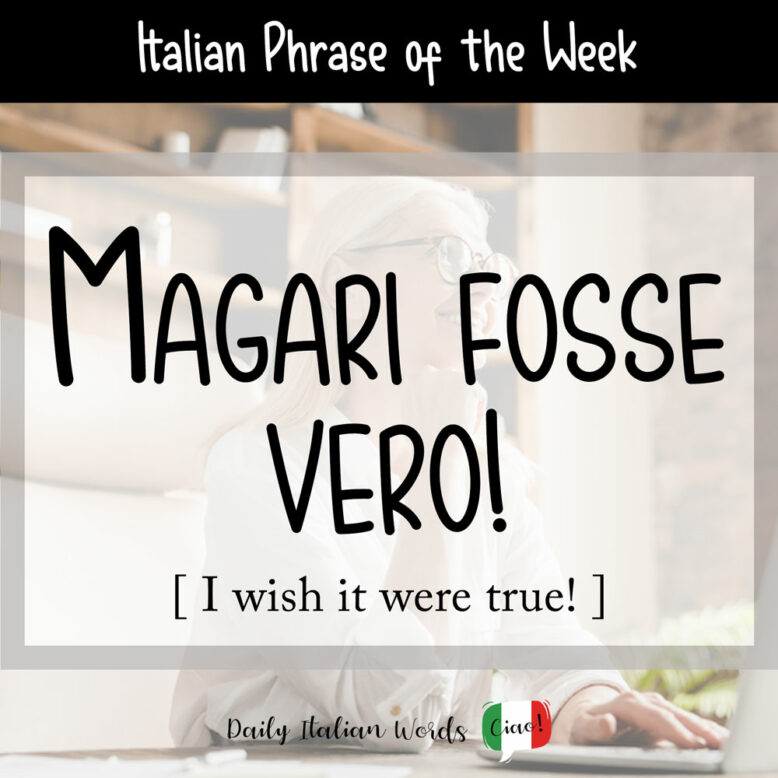If you wish something were true, you would like it to be true, even though you know that it is impossible or unlikely.
To express this sentiment in Italian, you can use the following phrase:
Magari fosse vero!
I wish it were true!

Magari is an extremely versatile word but it isn’t the easiest to translate into English. It can mean “maybe” or “perhaps” in some contexts, and “if only” or “I wish” in others.
- Magari Luisa verrà domani. = Maybe Luisa will come tomorrow.
- Magari! = If only! / I wish!
- Magari vincessi alla lotteria! = If only / I wish I could win the lottery!
When magari means “if only” or “I wish” as in today’s phrase, you must use the congiuntivo imperfetto (imperfect subjunctive), which is used for hypothesising and wishful thinking, as well as describing uncertain actions. For example:
- Magari fossi ricco. = If only / I wish I were rich.
- Magari avessi più tempo. = If only / I wish I had more time.
This is why our phrase uses fosse vero (it were true) instead of the present tense è vero (it is true) or the imperfect tense era vero (it was true).
Important: if you use the present or the imperfect, magari translates as maybe and not as if only / I wish. This changes the meaning of the phrase: magari è vero = maybe it’s true (you don’t know if it’s true or not, or you’re not sure).

As for the adjective vero (true), it appears in its masculine form in this phrase, but could also be used in its feminine form vera if the subject happens to be feminine.
Magari fosse vero questo film!
If only this film were true!
(masculine)
Magari fosse vera questa notizia!
If only this news were true!
(feminine)
You can also shorten the phrase to just fosse vero.
Dicono che ci sarà un’elezione molto presto. – Fosse vero!
They say there will be an election very soon. – If only it were true!
Finally, a variation of this week’s phrase can be se solo fosse vero, where se solo is the literal translation of if only.
- Se solo fosse vero questo film! = If only this film were true!
- Se solo fosse vera questa notizia! = If only this news were true!
Heather Broster is a graduate with honours in linguistics from the University of Western Ontario. She is an aspiring polyglot, proficient in English and Italian, as well as Japanese, Welsh, and French to varying degrees of fluency. Originally from Toronto, Heather has resided in various countries, notably Italy for a period of six years. Her primary focus lies in the fields of language acquisition, education, and bilingual instruction.


